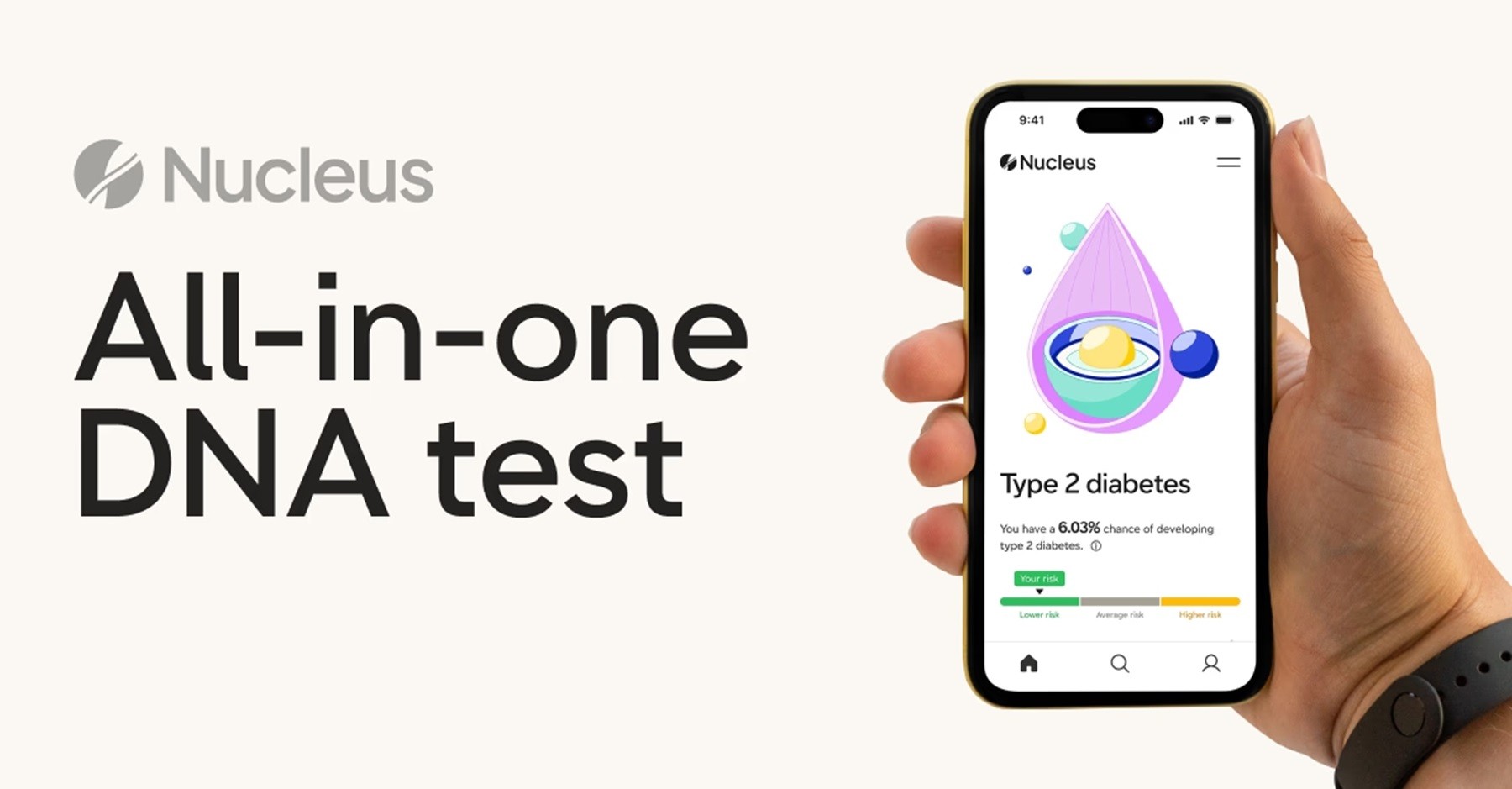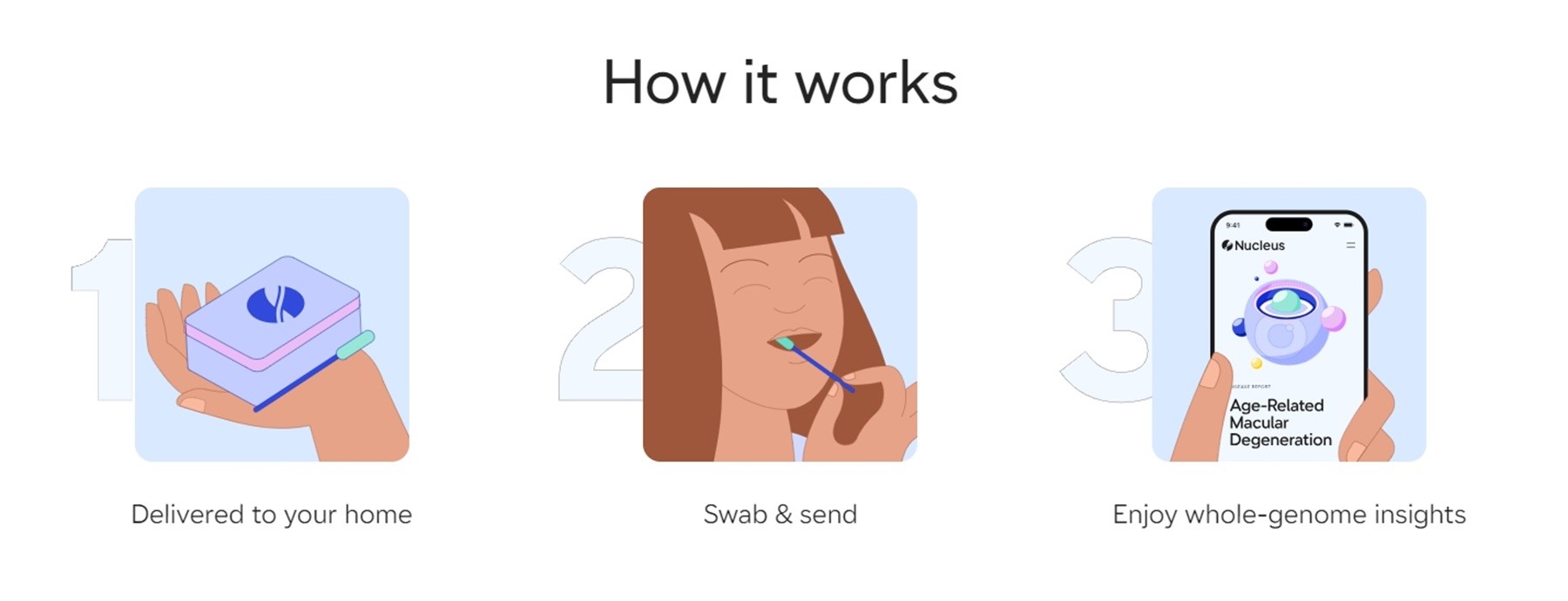Whether you’re experiencing health problems or not, genetic testing can be a valuable source of information, allowing you to understand your body on a deeper level. The best part is that services like Natera and Invitae let you complete the entire testing process without leaving your home.
Natera and Invitae can estimate your risk for conditions and diseases such as cancer, inform treatment decisions, and help you maintain health in the long run. They provide clinical-grade testing and counseling services, earning trust and recommendations from numerous medical practitioners. Still, they target different health areas and suit different use cases.
This Natera vs. Invitae comparison will familiarize you with these DNA testing services and help you determine which one’s better. You’ll read about their testing options, pricing and insurance compatibility, and user experiences.
Invitae vs. Natera at a glance
Before we get into the details, use the table and sections below to understand the basics of these testing services:
Bonus read — Discover alternative health-oriented DNA tests below:
Natera: Cell-free DNA testing across 3 categories
Natera is a testing service that analyzes cell-free DNA (cfDNA), which are fragments of DNA that circulate in your blood. This DNA initially remains in the cells’ membranes, but it’s released into circulation when the cells die.
The concentration of cfDNA varies in response to cancer, inflammation, and other conditions. By conducting a liquid biopsy, i.e., taking your blood sample and measuring the cfDNA content, Natera can uncover various information about your health. At the moment, it provides screening for the following three areas:
Oncology: Analyzing existing cancer to determine its heritability, predict recurrence, and optimize treatment.
Women’s health: Assisting with family planning by estimating your genetic and pregnancy risks and assessing the baby’s health during pregnancy.
Organ health: Monitoring the health of a transplanted organ and inform strategies to prevent rejection.
To take one of Natera’s tests, you’ll need to schedule a blood draw, which can take place at a partner lab or at home. Once ready, your results will be available in the online patient portal.

Source: Natera
Before or after your test, you can connect with a genetic counselor for additional information about testing, your results, and the next steps. The company also provides patient education, offering useful content like brochures and webinars.
Invitae: Genetic testing for a variety of purposes
Like Natera, Invitae can help guide your health decisions, but it analyzes both standard cell DNA and cfDNA. This allows it to provide broader health insights that span the whole body. Invitae offers diagnostic testing for adult and pediatric patients and proactive testing aimed at prevention for healthy adults.
If you want to test with Invitae, you must request an order online and fill out the form. Next, you’ll need to consult with one of the company’s medical partners, who will approve or deny your request. If approved, you’ll receive an at-home testing kit to receive your sample, which you can mail to the lab. The sample collection process and expected turnaround time vary depending on the specific test.

Source: Invitae
After receiving your results, you can meet with one of Invitae’s genetic counselors to answer any questions and offer treatment guidance. This option isn’t available for personalized cancer monitoring or for patients outside the U.S. and Canada.
Bonus read — Learn about the tech that powers DNA tests like Natera and Invitae:
Natera vs. Invitae: A comparison of 5 key elements
Although they offer medical-grade DNA tests that can provide crucial information about your health, Natera and Invitae differ in many ways. We’ll analyze them in-depth in the following sections, focusing on the elements that can impact your purchasing decision:
Variety of analyses
Quality of reports
Pricing and insurance coverage
Privacy and security
Customer service and reviews
1. Variety of analyses
Natera and Invitae both provide various genetic tests, including cfDNA tests, to monitor cancer and assess heritability. That said, Natera’s overall scope of analyses is narrower due to its sole focus on cfDNA. Natera’s tests specialize in oncology patients, organ transplant receivers, and women who are pregnant or trying to conceive.
In contrast, Invitae offers a broad selection of diagnostic and proactive health tests, which can serve both patients and healthy individuals. Invitae can estimate your risk for numerous diseases and conditions that Natera can’t, including those related to:
Cardiology
Neurology
Dermatology
Endocrinology
Ophthalmology

Source: Invitae
2. Quality of reports
When it comes to clinical validity, both Natera and Invitae’s tests are generally up to par, and numerous peer-reviewed studies have confirmed their accuracy. The companies have over a decade of experience testing millions of users. Their laboratories are CAP and CLIA-certified, which means they adhere to rigorous standards for quality, accuracy, and timeliness of analyses.
Still, while Natera and Invitae are highly efficient and accurate in some health areas and use advanced next-generation sequencing technology, they look at select genes only, typically less than 200 — and may produce false positive or negative results.
Because of that, it’s important to consult with your healthcare provider before taking any action. They may seek additional testing to confirm the findings. Check out one Natera customer’s experience:
Tip 💡
If you want a complete analysis of your genome and its risks, get your whole genome sequenced with Nucleus. The platform offers an affordable at-home test that provides all-in-one insights, revealing your genetic health predispositions and carrier status for hundreds of diseases and conditions. Besides decoding almost 100% of your genome, Nucleus considers non-genetic factors that can significantly impact your health.
With such a comprehensive approach, Nucleus can produce accurate and personalized reports, including actionable advice you can start implementing immediately.
3. Pricing and insurance coverage
When it comes to billing, Natera and Invitae offer you the option to self-pay or use insurance. Their pricing models are complex, with final prices varying greatly depending on your chosen tests, insurance plan, and other requested services. The companies generally aren’t transparent about the cost of their tests, though Natera has shared that its women’s health tests are typically $249 or $349.
Some sources claim that Invitae's prices will increase significantly at the beginning of 2025 due to the LabCorp purchase. The connective tissue panel is expected to jump from $250 to $3,500 with the self-pay option.
According to the reviews, paying for these tests out-of-pocket may end up being cheaper than with insurance. Some customers who chose the self-pay option reported paying only a few hundred dollars. In contrast, many insured users have reported being charged much higher than expected (some as high as $12,000) after being told their plan would cover most of the costs.
That said, it’s unclear whether these were errors on the company’s or the customer’s part, as some mistook their insurance provider’s explanation of benefits (EOB) for the bill. Also, many of these users reported that they were able to reduce the final cost after contacting customer support:
To avoid such inconveniences, it’s best to contact the testing company for a cost estimate and check your options with the insurance provider before ordering.
Bonus read — Discover our other comparisons of popular DNA testing services:
4. Privacy and security
Your data should be safe with Invitae and Natera as the companies adhere to industry standards for security and privacy. Besides working with CLIA and CAP-certified labs, Invitae and Natera are HIPAA-compliant and allegedly employ numerous measures to safeguard your data. As per our research, neither company has had any security incidents recently.
5. Customer experience and reviews
Neither Natera nor Invitae have the Better Business Bureau (BBB) accreditation. While both companies have their share of negative reviews, Invitae holds a lower BBB rating of D- compared to Natera's A+. With both services, customers mostly complain about:
Billing and insurance coverage issues
Longer than expected turnaround
Unresponsive or unhelpful customer support
Invitae, in particular, seems to be in a challenging position right now. After declaring bankruptcy in early 2024, the company was acquired by LabCorp and is likely going through significant changes.
It’s also worth mentioning that Natera has recently won a legal case against Invitae, specifically its subsidiary ArcherDX. Invitae is to pay $19.3 million in damages to Natera for patent infringement related to cfDNA-based cancer detection technology.
Takeaways: Which testing service should you go with?
Though they target different areas, Natera and Invitae’s tests can be an excellent way to take a proactive approach toward your health and inform lifestyle and treatment decisions. Like any testing service, their insights aren’t perfect, so consulting with your doctor is necessary to determine the best course of action.
Although Invitae has a broader range of analyses, it looks at only a small portion of your genes and thus can’t comprehensively assess your genetic makeup and its effect on your health. To access such information, you should opt for a whole-genome test such as Nucleus Premium.
With Nucleus, you only need to take one test, and you’ll get an in-depth analysis of your DNA, including rare genetic differences often overlooked by other tests. Like Natera and Invitae, Nucleus screens for cancer and hundreds of other diseases and conditions. The test can evaluate your unique health risks, hereditary conditions within your family, and even genetically impacted traits like intelligence.
Nucleus’ test is physician-approved, though you don’t need physician input to order it or interpret the results. You can use its actionable reports to start making positive changes in your life right away and ensure a healthier tomorrow.

Nucleus: Life-changing health insights at your fingertips
Nucleus is a clinical-grade platform that can analyze your DNA using the latest whole-genome sequencing technology, which allows it to achieve 99.9% accuracy. Besides your genes, Nucleus will account for your lifestyle and environmental factors that can influence the expression of your genes and health.
Based on one cheek swab test, Nucleus can assess your:
Risk for over 800 diseases and conditions, including rare cancers and mental health conditions
Carrier status for inheritable conditions
Traits like longevity, muscle strength, and BMI
You can order the test, collect the sample, and access your results without leaving your home. Since the reports are written using clear language and contain useful graphs, you’ll have no difficulty understanding them regardless of your knowledge level. Still, Nucleus can connect you with a board-certified genetic counselor via SteadyMD if you need clarification or guidance.
Nucleus is fully regulated and committed to quality, accuracy, and scientific integrity, collaborating with local labs that possess the CLIA and CAP certifications and use U.S. machines. The platform is also HIPAA-compliant, so you don’t need to worry about the safety of your sensitive information.
Explore your DNA’s complete story with Nucleus
To start your Nucleus whole-genome analysis, order the [PRICE.KIT_SOLO.ONE] kit, which you can pay for using your HSA or FSA plan. This price covers all the equipment you need to collect your sample, two-way shipping, and every available health and trait report.
Here’s how you can order the Nucleus Premium kit:
Provide your personal information
Place the order
Taking a sample is easy and painless as you only need to swab your cheeks. Once the lab receives your sample, you’ll get your results online within six to eight weeks. You’ll also get new reports as Nucleus expands its database and uncovers additional information.

You may also like…
Learn about other DNA testing options for ancestry and health:
Featured image source: National Cancer Institute












